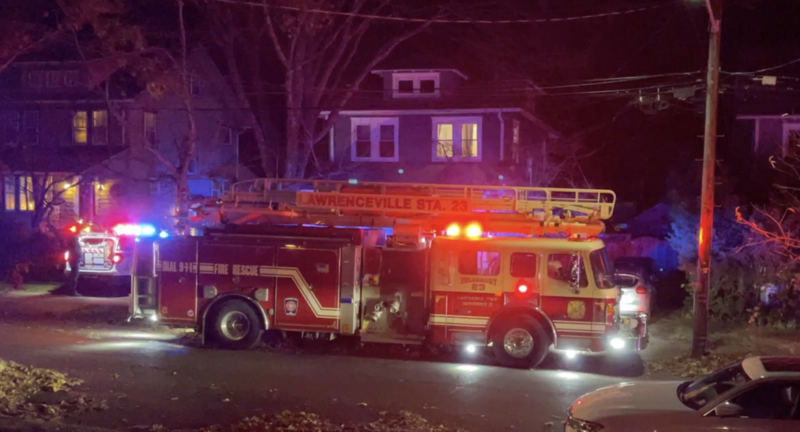Lawmakers want to require training to help first responders fight electric vehicle fires

When a veteran correctional officer crashed his electric car in May, it took firefighters an hour and a half and 30,000 gallons of water to douse the blaze.
That was too late for Daniel Sincavage, who died when he got trapped in his burning Tesla after it veered off the road and hit trees as he drove between facilities at Southern State Correctional Facility in Cumberland County.
Now, several state lawmakers want to make sure firefighters and other first responders are better armed to fight fires that ignite in electric vehicles, which require specialized training and gear to extinguish because their lithium-ion batteries burn hotter and longer than gasoline engines.
One bill would require firefighters and emergency medical technicians in New Jersey to be trained on the risks of electric vehicle fires and how to safely and effectively put them out. Another would establish an annual allocation from the Board of Public Utilities to pay for the training.
Electric cars aren’t common, and electric car fires even less so. Of more than 6 million cars registered in New Jersey, just 47,830 of them were electric vehicles as of June, according to government data. And only 25 out of 100,000 electric cars catch fire, far fewer than gas-powered or hybrid vehicles, according to a recent study by AutoinsuranceEZ.
But as New Jersey sets new mandates for greener transportation, protecting electric car drivers and passengers is becoming an increasingly urgent issue, said Sen. Ed Durr (R-Gloucester), one of the legislation’s prime sponsors. Durr said Sincavage’s death inspired him to introduce both bills.
“This is an area that needs to be addressed if we’re going to be promoting electric vehicles,” Durr said. “This is a bill that’s for the public good, and it shouldn’t be a partisan issue.”
While most of the lawmakers who signed on to sponsor both bills are Republican, a few are Democrats.
Both Gov. Phil Murphy and President Biden have set goals to cut climate pollution by shifting transportation away from fossil fuels, requiring half of all new cars sold by 2030 to be electric.
New Jersey also has eyed public transit for electrification. NJ Transit is working on electrifying its fleet, while lawmakers earlier this year approved a $45 million investment to install electric school buses across the state.
The shift has prompted concern in the firefighting industry because electric vehicles and hybrids present new hazards, such as toxic, flammable gases from fire-damaged batteries and the potential for electric shock.
William Sullivan is president of the New Jersey Policemen’s Benevolent Association Local 105, the union that represents state correctional officers.
He said Sincavage, besides being a longtime correctional officer, also co-owned a uniform store and a firearms range, so he was widely mourned in the law enforcement community.
Sullivan supports the legislation because he expects many law enforcement vehicles used for patrols and prisoner transport will soon be replaced with electric models, given the state’s clean-energy goals.
“We don’t have the equipment or the training to utilize fire suppression equipment for electric vehicles,” he said.








